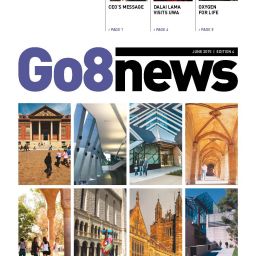April 19, 2017
The Australian, 20 April 2017
By Julie Hare
Vice-chancellors of the nation’s leading universities say the government crackdown on 457 visas and its removal of more than 200 jobs from its skilled occupation list — including life scientists, civil engineers, historians, microbiologists and archaeologists — would catch world-class researchers and scientists in its net.
They are equally concerned about the fate of internationally educated PhD students and postdoctoral staff, who can take six to 10 years to gain their qualification. The proposed changes would prohibit the recruitment of some newly graduated PhDs.
Group of Eight chairman Peter Hoj yesterday wrote a letter to Malcolm Turnbull expressing concern for the potential damage the visa changes could wreak on the nation’s most research-intensive universities, which rely heavily on a globally mobile workforce with skills shared by few other individuals.
About 2000 academic staff are employed on 457 visas across Australia’s 39 universities, with many more at senior professorial and executive levels, wrote Professor Hoj, an internationally acclaimed biochemist and wine scientist who was trained in Denmark.
The Australian understands Monash University has about 280 staff on 457 visas, while Australian National University has 240.
Immigration Minister Peter Dutton indicated on Brisbane radio yesterday that highly skilled workers, including university lecturers and neurosurgeons, would be put on a “defined list in the medium-term stream, which is four years”. He also said they might have the prospect of staying as a permanent resident.
ANU head Brian Schmidt, who arrived from Harvard after completing his PhD in 1994, said any restriction on the movement and ability to recruit academic staff “would be of paramount concern”. “My hope is that the status quo — where academics can move freely in and out of Australia — should be maintained. We would be very concerned if we were restricted in hiring academics from abroad based on any criteria,” Professor Schmidt said. Under the government’s proposals, Professor Schmidt would only be awarded a two-year visa to come here as a Harvard post-doc, which would not have been enough time to conduct his Nobel Laureate-winning work, which found the universe was expanding at a faster rate than previously understood.
Former Australians of the Year Ian Frazer and Fiona Wood were both educated overseas but came to Australia as foreign researchers before establishing their careers here. World leading quantum computing researcher Michelle Simmons from the University of NSW, was educated in the UK.





